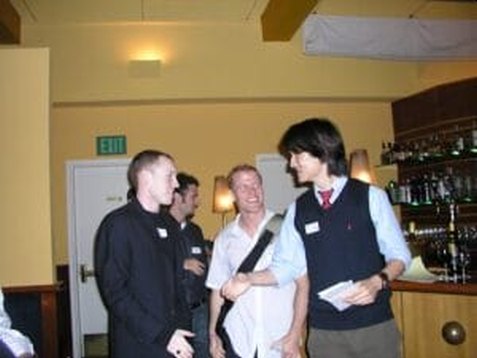Are you in your twenties and feeling a bit lost in terms of your career direction? Well, you’re definitely not alone in that boat. This week, we want to share an inspiring story about an entrepreneur who faced numerous setbacks but refused to throw in the towel. You might be familiar with AppSumo, a platform known for offering great deals on software, digital products, and online services.
The brains behind AppSumo is Noah Kagan. He saw an opportunity in the market to help startups by providing discounted web applications, and thus AppSumo was born. Today, it’s a major player in the digital space, bringing in over $100 million in revenue annually. But it wasn’t an overnight success; it took time and plenty of perseverance.
Before launching AppSumo, Noah had stints at big tech companies like Intel, Facebook, and Mint. His journey is marked by both failures and victories. In a recent blog post, Noah shared some valuable insights gained from his rocky first decade in the workforce.
As many are aware, the statistics on startup success rates can be quite daunting: 90% of startups fail. Noah’s journey in the world of startups is no exception to this reality. With more than 20 failed ventures behind him, Noah doesn’t shy away from the harsh realities of entrepreneurship. However, he’s quick to highlight his wins, particularly the transformation of AppSumo into a major success story.
“I’m 42. The first 10 years of my career were a roller coaster of emotions: Rejected by MSFT, rejected by Google (2x), Fired by FB after 9 months, fired by Mint.com after 10 months, built 20+ startups that didn’t work out. But I’ve also: Built AppSumo to $100M/year in revenue, grew my YouTube channel to 1M+ subscribers, and have interviewed 1% of the world’s billionaires. In short… I’ve made A LOT of mistakes. But I’ve also learned a lot,” Kagan wrote.
Noah’s career path has been far from smooth. He faced rejections from tech giants like Microsoft and Google and even got the boot from Facebook and Mint.com. But through it all, he managed to achieve significant victories. Not only did he grow AppSumo into a multimillion-dollar enterprise, but he also amassed a substantial following on YouTube, with over 1 million subscribers. He’s conducted interviews with some of the world’s wealthiest individuals as well.
In essence, Noah’s story teaches us that setbacks are just part of the journey. With determination and resilience, it’s possible to turn failures into successes and pave your way to greatness. Today, Noah Kagan serves as a shining example of perseverance in the face of adversity.
Noah Kagan’s 18 Essential Lessons for Young Entrepreneurs
In a recent blog post, he shared insights from his first ten years in the workforce, offering valuable lessons learned from his experiences to young entrepreneurs. Now, at the age of 42, Noah has some hard-earned wisdom to share, straight from the school of hard knocks. Here’s his no-nonsense advice:
In Noah Kagan’s narrative, vulnerability is transformed into strength, and uncertainty into opportunity, offering a beacon of guidance for the next generation of trailblazers.
Meanwhile, Noah recently released a new book titled “Million Dollar Weekend.” In his own words, it’s the kind of business guide he wished he had in his younger days. Drawing from his experience of creating eight million-dollar businesses, the book is a treasure trove of insights and lessons. If you’re eager to delve into Kagan’s wealth of entrepreneurial wisdom, you can find the book available for purchase here.
If you found this story engaging, you’ll definitely want to check out our latest article on getting your startup up and running. Titled “How to Start a Startup,” it’s packed with practical advice and insights to help you kickstart your entrepreneurial journey.

